By Fred Brown
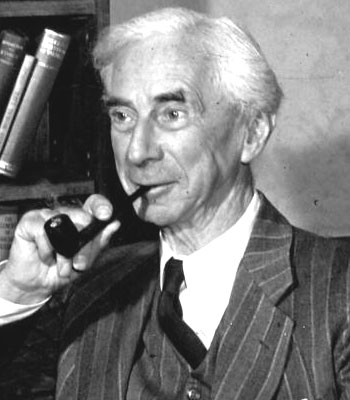
Bertrand William Arthur Russell, grandson of a British Prime Minister, and one of Great Britain’s leading writers and philosophers, claimed to have remembered not only the day but also the very instant that he became a pipe smoker. Talk about your Eureka moment!
"I remember the precise moment," he said in an interview. It took place, he said, "One day in 1894 as I was walking along Trinity Lane, when I saw in a flash that the ontological argument (for the existence of God) is valid. I had gone out to buy a tin of tobacco; on my way back, I suddenly threw it up in the air and exclaimed as I caught it, "Great Scott, the ontological argument is sound. " (It may be noted in passing that in 1894 Russell was just 22 years old.)
Born in 1872 in Ravenscroft, Wales, Russell died in Wales just two years shy of his 100th birthday. Across the span of his nine decades, Russell was considered one of Britain’s leading thinkers, to be included in the ranks of Locke, Hume and even his godfather, John Stuart Mill.
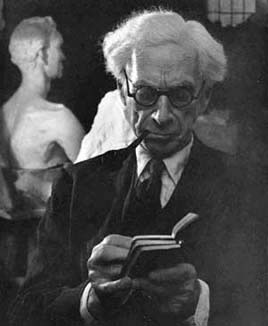 "Bertie," as he was known all of his life, was privately educated as a child and later schooled at Cambridge’s Trinity College, graduating in 1895 with high honors. He was also the 3rd Earl Russell and a Lord in British politics. His parents died early in his life, leaving him to be reared by his grandparents, Lord John Russell, two-time former British Prime Minister, and Lady Frances Elliot.
"Bertie," as he was known all of his life, was privately educated as a child and later schooled at Cambridge’s Trinity College, graduating in 1895 with high honors. He was also the 3rd Earl Russell and a Lord in British politics. His parents died early in his life, leaving him to be reared by his grandparents, Lord John Russell, two-time former British Prime Minister, and Lady Frances Elliot.
Russell’s wide influence shaped the world’s thinking on logic, philosophy, mathematics, physics, history and socialism. He was considered an extreme liberal, socialist and pacifist, who gave away so much of his inheritance over the years that he had to turn to his writing to support himself and his several wives.
His prodigious output of books, lectures, papers and essays advanced his worldwide standing and reputation and garnered him the Nobel Prize for Literature in 1950, presented, the Nobel panel said, for his writings on freedom of thought and humanitarianism. The year before, Russell had won Britain’s highest civilian honor, the Order of Merit, not only for his writing, but also his impact on philosophy and logic.
Among his great passions for liberalism and socialist philosophy, Russell, rarely seen without a coat and tie, was also dedicated to smoking. His jacket pockets were usually filled with pipes and pipe tobacco. He began smoking a pipe at the age of 22 and didn’t stop until the day he died.
His favorite pipe seems to have been a straight billiard, about a Group 3 or so. In some photographs he is also pictured at times with the classical shape of an English bent billiard, on the order of a Peterson 69 P-Lip.
But there is not much doubt about his favorite tobacco: He told an interviewer once that he had ordered his tobacco, "Golden Mixture," from a London tobacconist from the time he was 25 years old. And, he added, he did not intend to stop smoking "until everything else stops for me. "
And, like another famous author, Mark Twain, Russell declared that he always had a pipe in his mouth unless he was sleeping or eating. Similarly, Twain had famously said that he tried not to smoke two cigars at the same time, "and never while sleeping. "Golden Mixture was from a shop in London at 130 High Street, known as Fribourg & Treyer, established in 1720 to produce snuff. By the time Russell was buying pipes and tobacco, the shop in the Haymarket Section had its own pipe tobacco and custom pipes, so it is also likely that he purchased his pipes there as well.
 The Fribourg & Treyer name is still on "Golden Mixture" blended by Planta. A fine ribbon blend of air cured golden Virginia tobaccos from Germany, it comes in 50 gram tins. [Order from PipesandCigars.com Here.] In an interview (now on YouTube – shown below), Russell confirmed that pipe smoking had in fact saved his life.
The Fribourg & Treyer name is still on "Golden Mixture" blended by Planta. A fine ribbon blend of air cured golden Virginia tobaccos from Germany, it comes in 50 gram tins. [Order from PipesandCigars.com Here.] In an interview (now on YouTube – shown below), Russell confirmed that pipe smoking had in fact saved his life.
When asked by the interviewer what his particular vice was, his instant reply was that it was tobacco. He declared that he had smoked during every waking hour of his adult life. When the interviewer asked whether smoking had harmed him, Russell claimed that smoking had actually saved his life.
He explained that he had once insisted on traveling in the smoking section of an airplane, which, mid-flight, had crashed into the sea, killing everyone in the non-smoking section. "Therefore smoking saved my life" argued Lord Russell.
[kml_flashembed movie="http://www.youtube.com/v/80oLTiVW_lc" width="480" height="360" allowfullscreen="true" fvars="fs=1" /]
And Russell usually had two pipes with him at all times, according to Richard Gregory, who studied under Russell at Oxford. Gregory recalled that Professor Russell would smoke both pipes intermittently, putting one down to cool off, and then smoking the one that had already cooled properly.
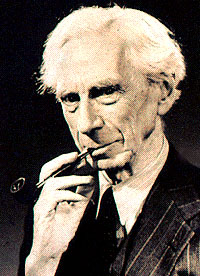 Wherever Russell went, controversy followed. He protested World War I, an act which cost him six months in jail, and he also protested World War II, the Vietnam War and the nuclear age. He taught at the University of Chicago, UCLA, and had a post in mathematical logic at the City College of New York in 1940. But a public outcry over his teachings and writings on sexual morality created a firestorm and he was relieved of his position almost immediately. He sued for re-instatement, but lost in a court ruling on the affair.
Wherever Russell went, controversy followed. He protested World War I, an act which cost him six months in jail, and he also protested World War II, the Vietnam War and the nuclear age. He taught at the University of Chicago, UCLA, and had a post in mathematical logic at the City College of New York in 1940. But a public outcry over his teachings and writings on sexual morality created a firestorm and he was relieved of his position almost immediately. He sued for re-instatement, but lost in a court ruling on the affair.
During this turbulent time, he was supported by many of America’s great thinkers and philosophers and scientists, including Albert Einstein, who wrote in a letter to Morris Raphael Cohen, professor emeritus of philosophy at the College of the City of New York, defending the controversial appointment, in one of his most famous quotes: "Great spirits have always encountered violent opposition from mediocre minds. The mediocre mind is incapable of understanding the man who refuses to bow blindly to conventional prejudices and chooses instead to express his opinions courageously and honestly."
Bertrand Russell, co-author of the monumental three-volume Principles of Mathematics in 1903, and the best-selling A History of Western Philosophy (1945), was, as Winston Churchill said of Russia, "a riddle, wrapped in a mystery, inside an enigma." He was at once brilliant and simple, a mathematician of extraordinary gifts, and a man possessed by love and women. Although he had practically invented logic through his study of mathematics and philosophy, he could not find order his own life.
Four marriages and numerous affairs all took a toll on his extraordinary life.
Author/professor of philosophy Ray Monk, one of Russell’s biographers, wrote in the last of his seminal two-volume works on the life of the genius, he had no idea when he began the work what a task he had laid out for himself.
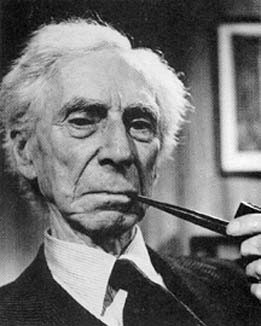 The first volume was The Spirit of Solitude, 1872-1921, and the second, The Ghost of Madness, 1921-1970, published in 2000, details the life of perhaps a mad genius, whose influence on 20th century thinking was profound. And the personal tragedy in Russell’s life – his unorthodox parenting of his son, John, with new science of child psychology that ultimately destroyed not only his son but also his granddaughter – eventually ruined the great thinker.
The first volume was The Spirit of Solitude, 1872-1921, and the second, The Ghost of Madness, 1921-1970, published in 2000, details the life of perhaps a mad genius, whose influence on 20th century thinking was profound. And the personal tragedy in Russell’s life – his unorthodox parenting of his son, John, with new science of child psychology that ultimately destroyed not only his son but also his granddaughter – eventually ruined the great thinker.
It took Monk 10 years to complete the biography after reading "thousands of documents," and encountering hundreds of people who knew and wrote about Russell.
Eventually, wrote Monk, he came to see Russell as a tragic figure. ". . . .that this has been a difficult book to write (because of). . . my growing realization of the tragedy of Russell’s life.
"It may seem odd to describe as tragic a life so full of achievements. . . And yet tragedy still seems to me the right word. I do not just mean that there was sadness in Russell’s life, though, to be sure, the degree of suffering he endured – and caused – has been one of the hardest revelations of my work on this book.
"To research Russell’s private life. . . . is to pick one’s way through a long trail of emotional wreckage, and to put oneself in the position of someone close to Russell has often been a heartbreaking experience."Monk says Russell was driven toward disaster by his deep-seated fear of madness and his "colossal vanity."The man who was chased by madness, who had little faith in the human race and was an unapologetic atheist, once said there was but one way to be truly happy, and that was to have wide interests.
And then you had to let your reactions to the people and things of those interests "be as far as possible friendly rather than hostile. "Russell seems to have been a man who stirred up passions and conflict, which often is the norm for men of genius, since many of them are themselves passionate and conflicted.
Yet, he was often able to temper his life with his beloved pipe and tobacco. Perhaps a pipe provided Russell some solace in his otherwise emotional and complicated existence, allowing time to create those necessary moments and insights that produced his long view into man and nature.

Fred Brown is a Retired Senior writer for the Knoxville News Sentinel and was a working journalist for 46 years before retiring in 2008. He lives in Knoxville, TN., where he continues to freelance. |
















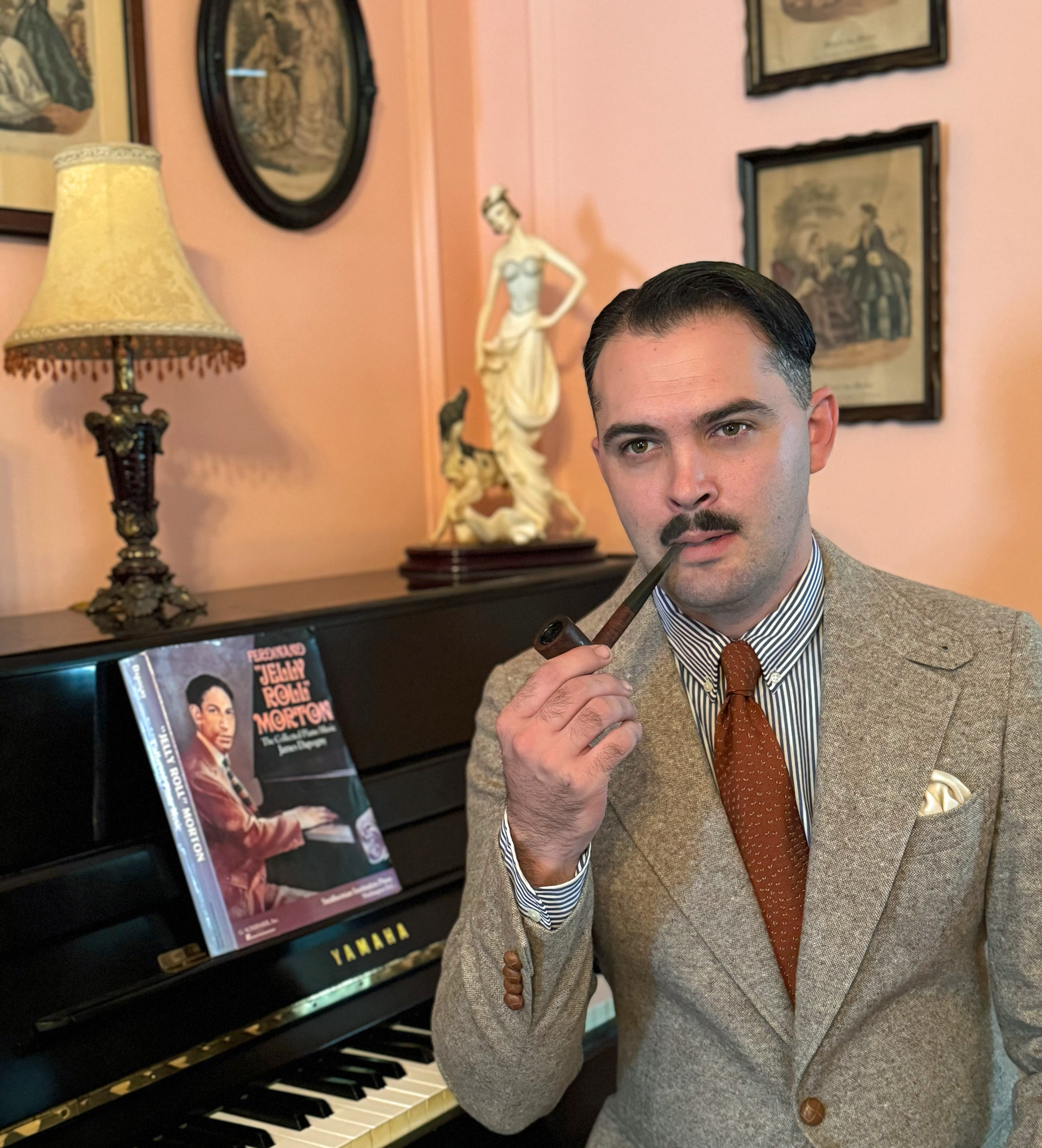

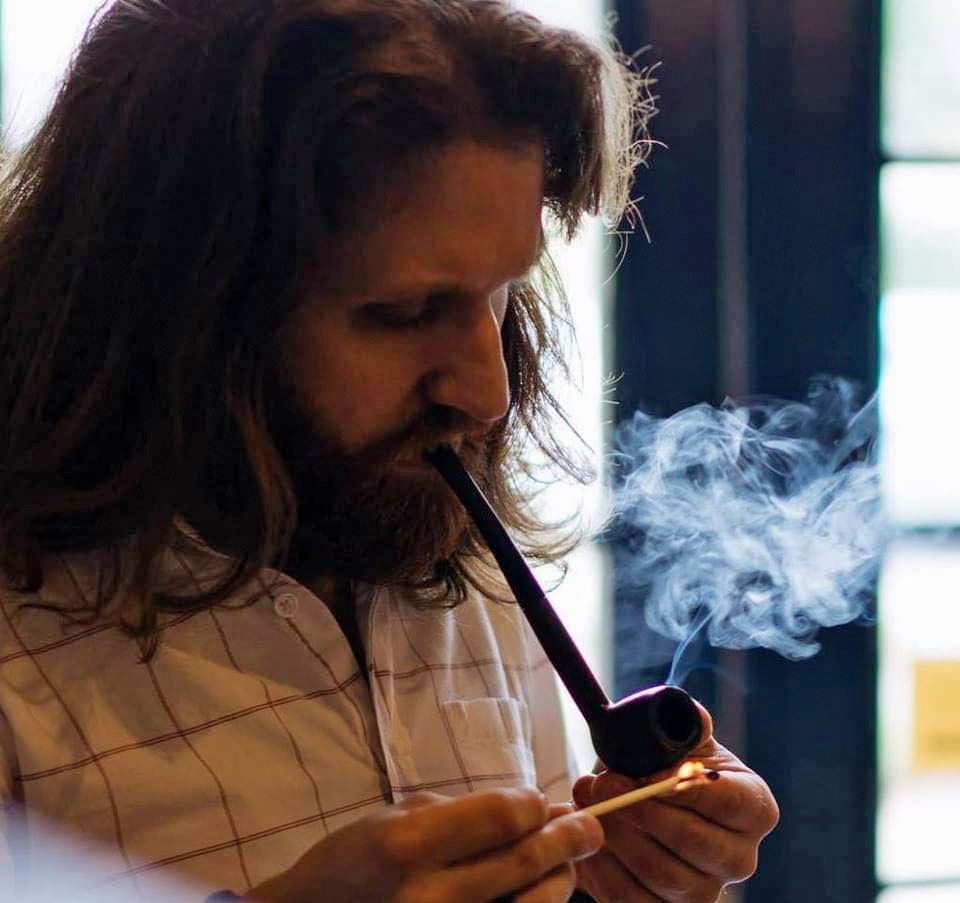




Thank again for another great history lesson. This is fast becoming by favorite segment on this website.
Maybe if more people smoked a pipe these days we could solve many of the great problems people are facing.
It is almost telling that with the decline of smoking has followed the decline of this country and many other countries around the world.
What a terrific profile of Bertrand Russell! Fred Brown is clearly a professional journalist who explains complex subjects so they are easy to understand — and interesting — and he fills in the who, what, where, when and why in each story.
My question is, how is it that Bertrand Russell was never without his pipe and lived to be 98? Obviously he had great genes, but you have to wonder, was the pipe a calming influence? Of course we will never know for sure, but it is interesting to speculate.
Thanks for such an interesting read.
A Great Mathematician and Philosopher, but one must also add that Russell was also chairman of something called the Vietnam War Crimes Tribunal. Perhaps Russell was in his dotage and was being played for a fool by lesser men, but I doubt many Vietnam Veterans appreciated his stance.
Excellent article about an extraordinary man!
Thanks for an informative and well written article about this “interesting” personality. The pipeman parallel between Russell and Mark Twain works well in context; yet I think most would consider Mark Twain a genius endowed with the wisdom to which Russell could never lay claim. Well, none of us can be good at everything. 🙂
To each his own, I suppose. But, I am not going to let the fact, that *BERTRAND RUSSELL* was an avid pipe-smoker, spoil my own love of pipe-smoking.
A great article by a great journalist from a GREAT town! 😉
A fascinating man,Lord Russell – complicated and controversial, as men of genius so often are.